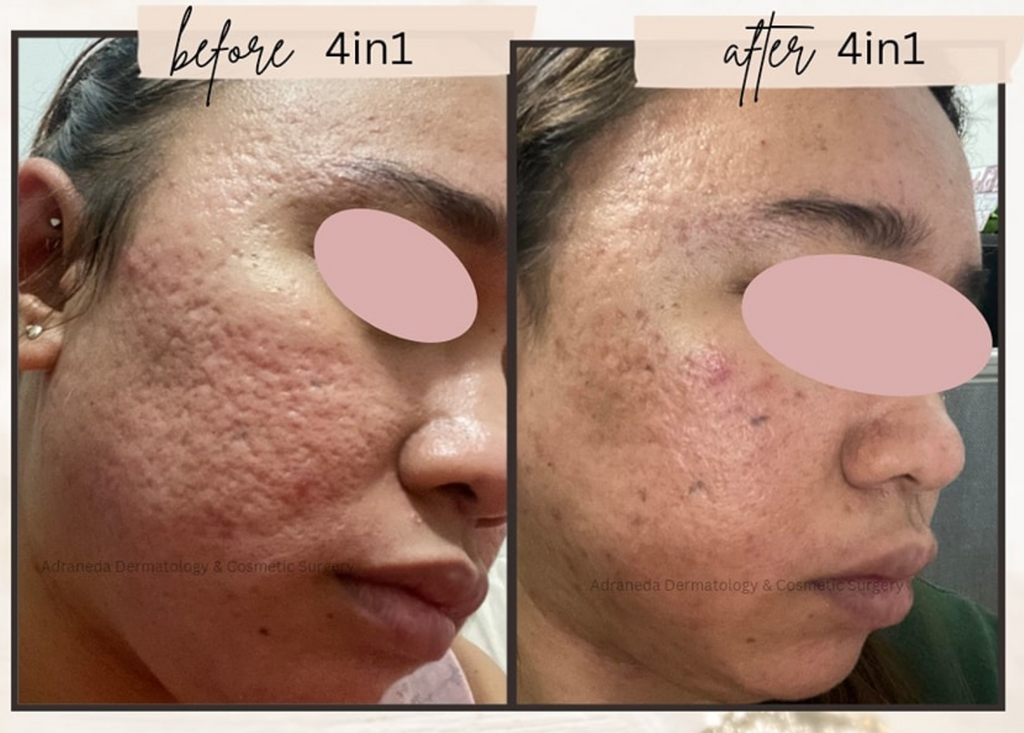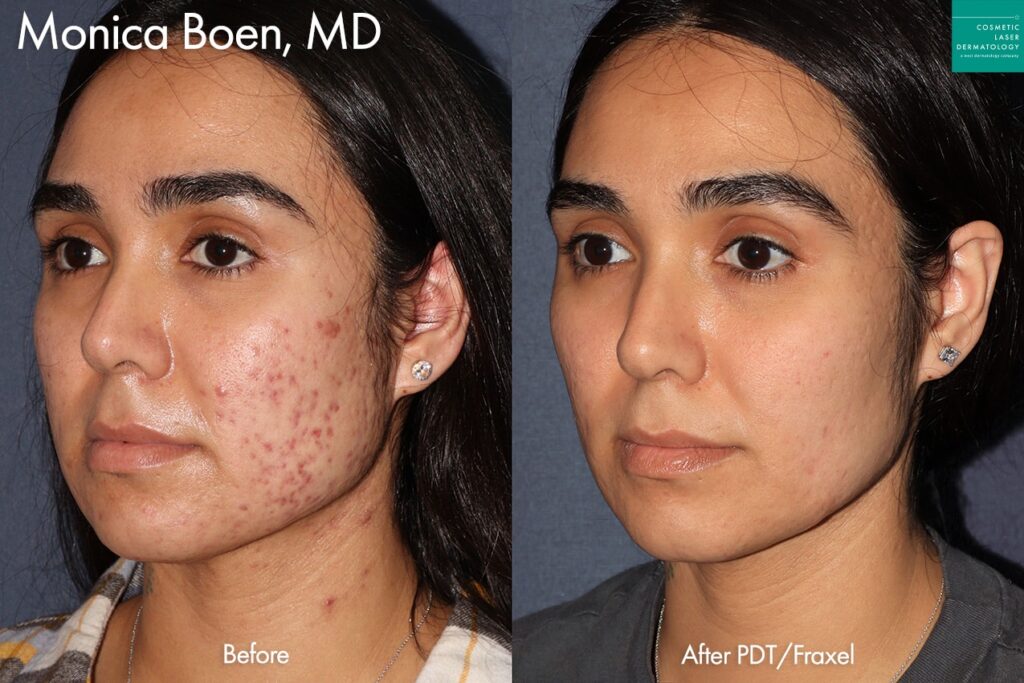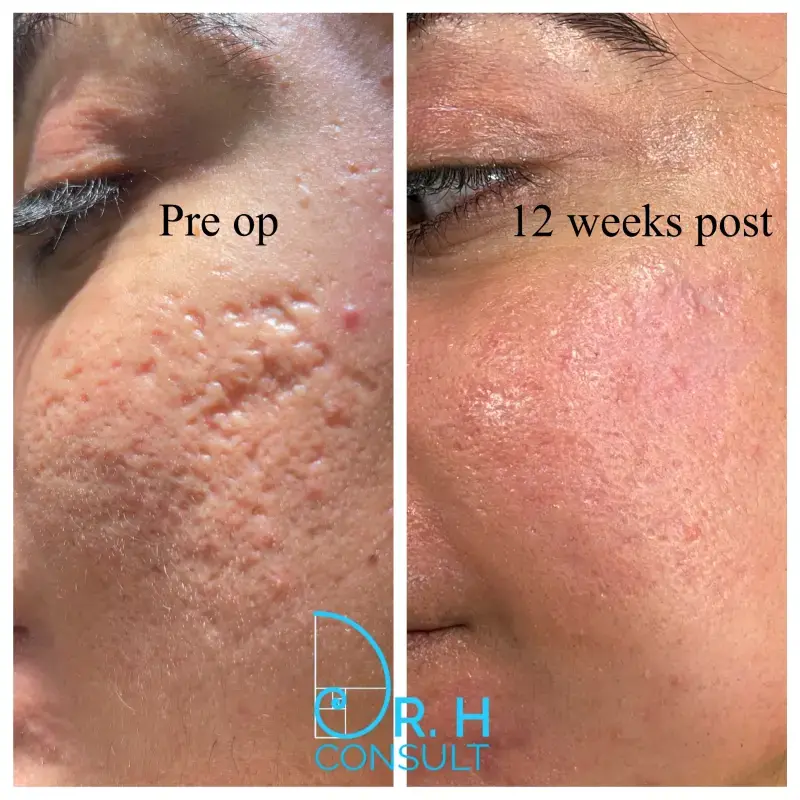Comprehensive Acne and Acne Scars Treatment: Recover Your Skin's All-natural Appeal
Comprehensive Acne and Acne Scars Treatment: Recover Your Skin's All-natural Appeal
Blog Article
Comprehending the Various Skin Conditions and Reliable Therapy Options for Acne Marks
Acne scars represent an intricate interplay of skin conditions that significantly influence people' self-esteem and general skin health. As we check out the landscape of acne scar management, it ends up being apparent that the trip toward clearer skin might entail more than just topical solutions.
Kinds of Acne Scars

On the other hand, hypertrophic marks result from an overproduction of collagen during the healing process, causing elevated locations on the skin. These marks are frequently solid and can differ in color, often appearing red or darker than the bordering skin.
Comprehending these kinds of acne marks is crucial for developing an efficient treatment strategy - acne scars treatment. Alternatives may include chemical peels, laser treatment, microneedling, or dermal fillers, tailored to the specific scar kind. A detailed appointment with a skin doctor can help establish one of the most ideal intervention, thinking about the person's skin type, mark extent, and overall skin wellness
Reasons For Acne Scarring
Marking takes place as an outcome of the body's all-natural recovery response to swelling and injury created by acne sores. When acne forms, it sets off an inflammatory action, leading to the launch of different cytokines and development aspects that promote healing. However, this process can often cause too much cells development or inadequate repair, leading to marks.
The main reasons for acne scarring consist of the severity of the acne itself, period of the lesions, and specific skin kinds. Severe inflammatory acne, such as blemishes and cysts, is most likely to result in scarring because of deeper cells damage. Furthermore, incorrect handling of acne sores, such as picking or squeezing, can intensify tissue injury and inflammation, increasing the chance of scarring.
Hereditary tendency additionally plays a considerable duty; people with a family members background of scarring go to a greater threat. Furthermore, skin type and shade can affect scar development, as darker skin tones might experience post-inflammatory hyperpigmentation, while lighter skin might develop atrophic scars.
Ultimately, comprehending these causes is essential in taking care of acne and mitigating the potential for scarring.

Therapy Options for Scarring
Efficient therapy alternatives for acne scarring vary relying on the kind and intensity of the marks. Generally categorized into atrophic, hypertrophic, and keloid scars, these conditions need tailored approaches for ideal results.
For atrophic scars, which are identified by a loss of cells, therapies such as chemical peels, microdermabrasion, and laser treatment are frequently used. These techniques advertise skin revival and boost collagen manufacturing, consequently enhancing skin texture. Subcision, a minimally invasive procedure, can additionally be efficient by breaking up coarse bands under the skin.
Hypertrophic and keloid marks can be much more challenging to treat. Alternatives consist of corticosteroid injections to reduce inflammation and flatten the scars. Sometimes, cryotherapy or laser treatment might be recommended to decrease their appearance.
Surgical options are offered for severe scarring, where excision or skin grafting may be needed. It's crucial for individuals to seek advice from with a dermatologist to analyze their details mark type and go over one of the most suitable treatment plan. Combining multiple treatments typically yields the most effective results, making certain that each individual's special skin condition is addressed properly.
Natural Remedy and All-natural Solutions
Natural remedies and home remedies can give an obtainable method for individuals looking for to enhance the look of acne scars (skin rejuvenation treatments). Various ingredients located in the home kitchen have shown potential advantages in boosting skin texture and promoting healing

Another effective option is lemon juice, which functions as an all-natural exfoliant and can lighten hyperpigmentation. Nonetheless, it must be utilized cautiously, as it may cause photosensitivity. Oat meal masks are likewise advantageous; their mild peeling can help remove dead skin cells while comforting inflammation.
Important oils, such as tea tree oil and lavender you can find out more oil, can even more support scar recovery as a result of their antimicrobial homes. It is crucial to do a patch test before using any type of treatment to make certain there are no negative reactions. These natural options can be a complementary strategy in the journey to diminish acne scars.
Avoiding Future Scarring
Embracing a proactive method to skincare can considerably minimize the risk of establishing future acne scars. One of the essential techniques is to manage acne efficiently as it arises. This involves utilizing non-comedogenic skincare products and medications recommended by skin doctors that target acne without aggravating the skin. Regular cleaning, exfoliation, and hydration can help preserve skin health and protect against blocked pores.
In addition, staying clear of the lure to select or press acne sores is crucial, as this can result in inflammation and succeeding scarring. Instead, people should concentrate on using topical treatments that promote recovery and reduce inflammation. Ingredients such as salicylic acid, benzoyl peroxide, and retinoids are known for their efficacy in managing acne and decreasing marks.
Sun protection is another crucial part; direct exposure to UV rays can impede and dim marks healing. Using a broad-spectrum sun block daily can alleviate these results.
Finally, maintaining a healthy and balanced diet plan rich in anti-oxidants and staying hydrated assistances skin regrowth. By carrying out these safety nets, individuals can significantly decrease their danger of future scarring and promote general skin health.
Verdict
In final thought, a thorough understanding of acne marks, encompassing both hypertrophic and atrophic types, is crucial for efficient treatment my sources approaches. Tailored treatments, including expert therapies and natural home remedy, can substantially improve skin look and texture. Precautionary measures also play a crucial role in minimizing future scarring. Examination with a dermatologist stays important to design personalized techniques that consider private skin kinds and mark severity, ultimately improving the efficiency of scar administration methods.
Acne scars represent a complex interplay of skin problems that significantly influence individuals' self-esteem and overall skin health. The 2 key groups of acne marks are hypertrophic and atrophic marks. These scars are further imp source classified into 3 subtypes: ice pick scars, which are deep and slim; boxcar scars, which are larger and have well-defined sides; and rolling scars, which create a wave-like look due to unequal skin structure.
A detailed examination with a skin specialist can aid figure out the most proper intervention, taking right into account the person's skin type, mark extent, and general skin health and wellness.
Consultation with a dermatologist continues to be imperative to create customized approaches that consider specific skin types and mark seriousness, inevitably improving the efficacy of mark management strategies.
Report this page